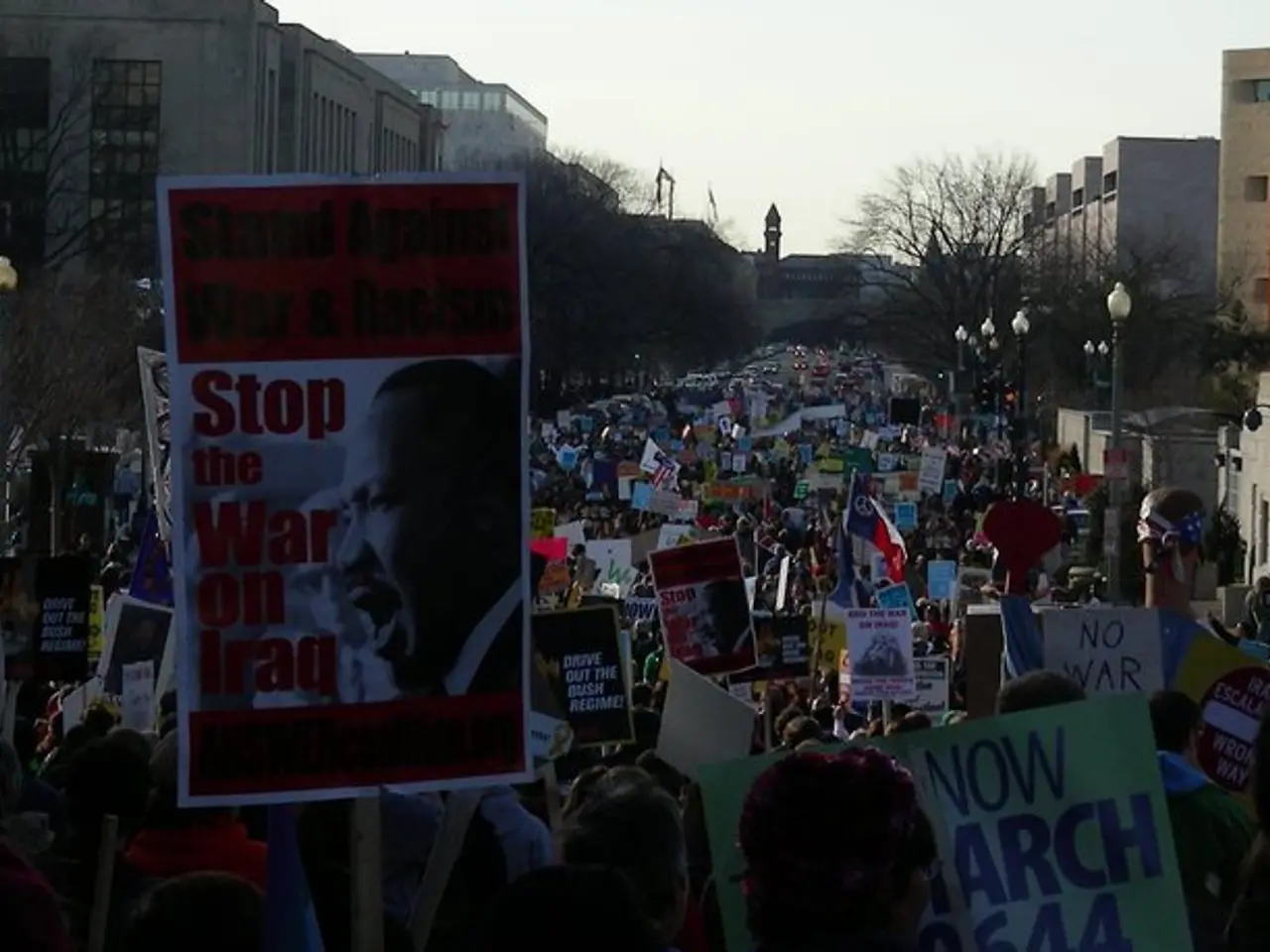Diplomatic Families in Germany to Depart
Berlin/Tel Aviv — With the escalating conflict between Israel and Iran, the German Foreign Office has advised the families of its personnel at foreign missions to depart forthwith. The ministry, located in Berlin, cited an increase in necessary measures to safeguard its overseas embassies, including the evacuation of family members for security reasons. Specific details were withheld intentionally for safety purposes.
The fate of German diplomatic staff in Israel and neighboring countries remains uncertain, pending further developments. Last week, German Foreign Minister, Johann Wadephul (CDU), expressed optimism that they will maintain both security and essential consular services within embassies.
As tension simmers in the Middle East, around 3,500 German nationals find themselves in Israel, and countless others in Lebanon, Iran, Iraq, and Jordan. The German Foreign Ministry urges those Germans living in volatile regions to abide by local safety instructions, signaling a precautionary stance towards their overseas compatriots.
Chancellor Friedrich Merz has publicly expressed his unwavering support for Israel's right to self-defense while urging both parties to curb their actions to avert further instability in the region. Simultaneously, Foreign Minister Wadephul confirms Germany's long-held support for Israel's security, adding that no official requests for military aid have been tendered from Israel to date. Any such requests would spark deliberations among the Federal Security Council before a decision could be made. Wadephul underlines Germany's unyielding solidarity with Israel while stressing the importance of legal and political deliberations before any additional military assistance is provided.
Presently, Germany has only supplied fire extinguishing materials to the conflict zone, abstaining from providing weapons or ammunition. Germany's authorities retain the willingness to offer support, should a formal request be received, although such decisions are intricate and confidential in nature.
Under Chancellor Merz's leadership, Germany aims to uphold continuity in its Middle East policy, backing Israel while avoiding aggravating the turmoil. There is no intention of revoking the EU-Israel Association Agreement in light of the Gaza war. Germany is also initiating reforms in foreign and security policy, including the development of a national security council to streamline foreign policy decisions in the face of crises like the Israel-Iran standoff [2][4].
In response to heightened regional tensions and Israeli airstrikes on Iranian targets, Chancellor Merz has summoned the federal security cabinet to tighten security specifically at Jewish and Israeli facilities within Germany, acknowledging the Middle East crisis as a genuine internal security threat [1]. The Israeli embassy in Berlin has been closed temporarily as a preventive measure, underscoring Germany's commitment to safeguarding their diplomatic personnel and interests.
- As the war-and-conflicts between Israel and Iran continue, politics play a significant role in Germany's decisions, with Chancellor Friedrich Merz taking steps to enhance security measures for Jewish and Israeli facilities within Germany.
- Amidst the escalating general-news in the Middle East, the German Foreign Ministry urges its citizens residing in volatile regions such as Israel, Lebanon, Iran, Iraq, and Jordan to heed local safety instructions, demonstrating a proactive stance towards the safety of their overseas compatriots.





